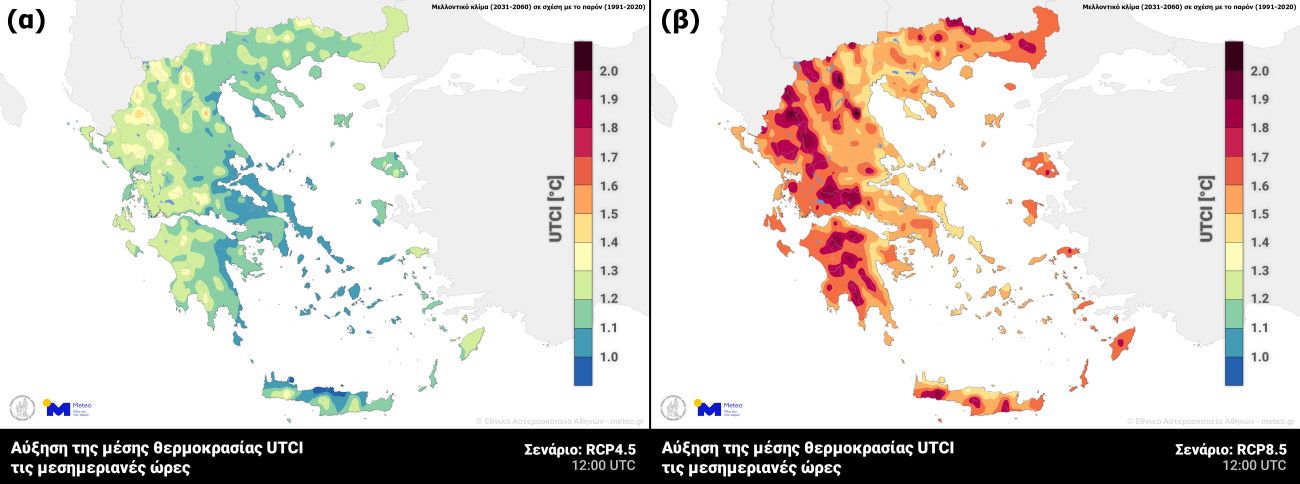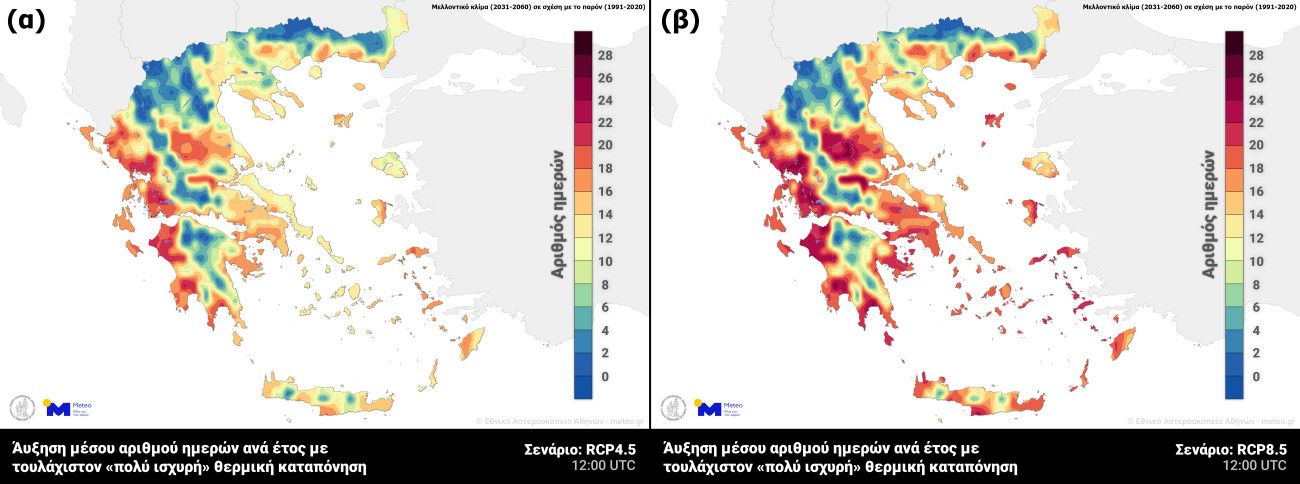Meteo: Thermal stress in Greece is deteriorating – what do climate data show

As the scientific data is increasing for the constant rise in temperature, the Athens National Observatory of Athens (EAA) conducted a study published by In Science of Science of the Total Environment to assess the effect of rising temperatures on thermal stress.
UTCI (Universal Thermal Climate Index, ◦C) were estimated, the changes in thermal stress projected to occur in Greece during the period 2031–2060, compared to the recent past 1991–2020.
UTCI is a widely and internationally used indicator that appreciates the thermal stress (stress) that the human body suffers.
Specifically, UTCI appreciates how our body feels its thermal environment by giving a more realistic image since it takes into account meteorological parameters (in addition to air temperature), such as humidity, wind and radiation, along with human physiology.
For example, when the UTCI temperature varies between 26 ° C and 32 ° C, it is considered to be « moderate » thermal stress due to heat. At higher prices, from 32 ° C to 38 ° C, the stress is « strong », while between 38 ° C and 46 ° C becomes « very strong ». Above 46 ° C, stress is « extreme » and the condition is characterized as extremely dangerous to health.
Scale
Increases thermal stress in Greece
In the study of thermal stress assessment in the coming decades, high-resolution Euro-Cordex database for lunchtime were used, based on two greenhouse gas emissions scenarios: one moderate (RCP 4.5) and a more pessimistic (RCP 8.5) Next decades.
The results of the study show a clear increase in thermal stress throughout Greece. Specifically:
- Increasing the UTCI average temperature in the period 2031-2060 across the country ranges from 1 ° C to 1.5 ° C in RCP4.5 scenario and from 1.4 ° C to 2 ° C in the RCP8.5 scenario
- The highest increase in UTCI average temperature is expected in the northern regions of the country, in the western mountain areas of mainland Greece, as well as in the Ionian and Eastern Aegean islands
- The maximum seasonal increase in the UTCI average temperature was found in summer where the average price for the whole country was estimated 1.6 ° C according to the RCP4.5 and 2 ° C -scenario, according to the RCP8.5 scenario.

Increasing average temperature UTCI at lunchtime, according to scenarios (A) RCP4.5 and (B) RCP8.5
How much is expected to increase the number of days with strong or very strong thermal stress
During the year, the number of days with:
- « Strong » thermal stress is expected to increase from 6 to 21 days according to the RCP4.5 scenario and from 7 to 27 days according to the RCP8.5 scenario.
- « Very strong » thermal stress is expected to increase by up to 22 days according to the RCP4.5 scenario and up to 28 days according to the RCP8.5 scenario. This increase is particularly noticeable in Western Greece and the Peloponnese (Figure 2) as well as in areas of Thessaly and Attica (Figure 2B).

Increasing the average number of days per year with at least « very strong » thermal stress at lunchtime, according to scenarios (a) RCP4.5 and (b) RCP8.5.
This study was implemented in the context of the project « Support for Upgrading the Operation of the National Network for Climate Change – Climpact » (Grant Agreement: 2023NA11900001, OPS 5201588).







